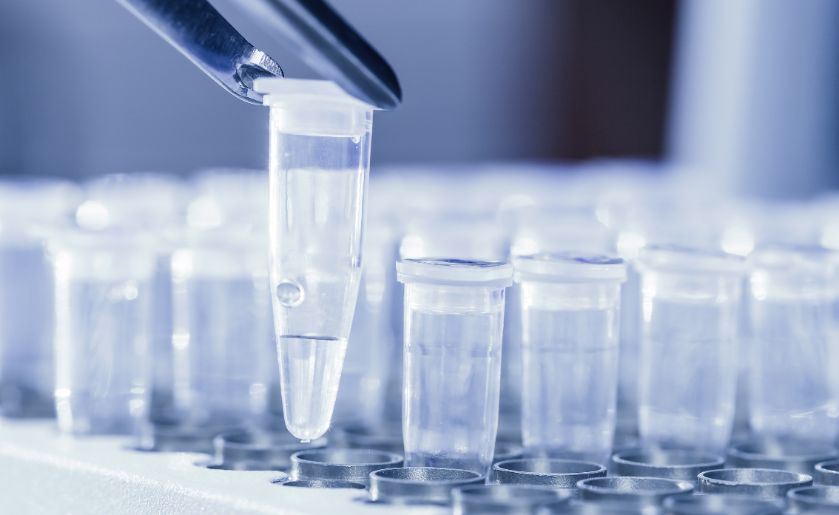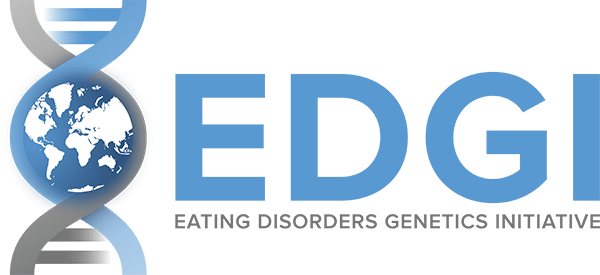FAQs
Participation in the Eating Disorders Genetics Initiative
Any Australian aged 18 years and over who has currently, or at any point in their lives experienced anorexia nervosa, bulimia nervosa, binge eating disorder, and avoidant restrictive food intake disorder (ARFID) can participate in the study.
Participating in this study could make a genuine contribution to improved understanding of the diagnosis, management and treatment of eating disorders.
Participants in EDGI will not be paid. However, Australians/those who choose to volunteer will be contributing to the global effort to unravel the genetics of eating disorders, which in turn may help improve the available treatments and outcomes for people living with anorexia nervosa, bulimia nervosa, or binge-eating disorder.
Unfortunately, at this stage, EDGI Australia are unable to collect DNA samples from people living outside Australia.
However, as this is an international study, we have collaborators in the USA and New Zealand who are also recruiting for EDGI. Please visit the relevant websites below for more information:
We are currently looking into options for people living in other countries outside Australia who would like to participate further in the research.
Alternatively, if you are returning to, or visiting Australia in the next 12 months, you are welcome to undertake the survey then and we can forward a saliva collection kit to your Australian contact address – just contact us 3 to 4 weeks before you arrive and we will see what we can arrange.
What is the process of the Eating Disorders Genetic Initiative study?
Study participation involves providing informed consent and completing a short 15 minute online survey. This compulsory module will be used to determine eligibility to the DNA phase of the study. Participants will also be given the option to complete other short survey modules on important experiences related to eating disorders including mood, treatment and personality. Completion of these extra modules is not required to be eligible for the genetic phase of the study.
- After completing the questionnaires, eligible participants will be asked to donate a saliva sample.
- Researchers will send a saliva collection kit together with a pre-paid return envelope to eligible participants.
Providing a saliva sample
If you are having trouble producing a sample, please perform the following techniques:
- Visualise squeezing a half-lemon;
- Don’t wait for 30 mins after eating.
Please note that any volume is useful, even with bubbles.
If you are still unable to produce a sample, take a teaspoon of water, vigorously swish it around in your mouth and add that to the tube.
Even if your saliva sample is discoloured in the tube (e.g., lipstick or food scraps or blood), there is still plenty of your DNA in the tube for us to extract and use.
Confidentiality and genetic data storage
Study participation is strictly confidential. All participant information provided will be maintained in accordance with the Commonwealth Privacy Act (1988) and National Health and Medical Research Council (NHMRC) Guidelines. Research information will be de-identified before being sent overseas for analysis.
Your personal details, questionnaire data, biological sample and genetic information will all be stored in separate, firewalled password protected databases. The only link between your personal details and your other data is your participant identification number. Linking your personal details and the other datasets using this number is restricted to members of the QIMR Berghofer data collection research team.
Internal access to these databases and samples are compartmentalised - the data collection team can only access your personal and survey information, analysts can only access your survey information and genetic data, and laboratory staff can only access your biosample and DNA [the latter two groups only have your ID number]. This compartmentalisation protects the confidentiality of participants.
When results are published they are done so as aggregated data, with no individual results included.
EDGI researchers will extract DNA from saliva samples to identify specific genes associated with eating disorders.
A full description of sample and data storage is given in the participant information sheet and consent form.
In summary, information you provide via the surveys and your genetic data will be de-identified and stored indefinitely in the National Institutes of Health (NIH) data repository called the database of Genotypes and Phenotypes (dbGaP), at the National Center for Biotechnology Information (NCBI) in Bethesda, Maryland, USA.
Your DNA sample will be stored at the Rutgers University Cell and DNA Repository (rucdr.org). For EDGI participants, this storage period will be for 10 years beyond the end of the study.
This research is not designed to provide any clinical results to participants. The study does not undertake individual analysis of each sample provided, but rather will undertake an overall comparison of genetic markers on all samples provided.
If you have a personal interest in obtaining a genetic test on your DNA, we suggest you consider contacting a genetic testing entity which can provide such testing.
We certainly want to provide feedback to participants about the study, so we intend to provide all participants with periodic updates of the project's progress and results via email.
Furthermore, when we publish the results from the research, any genes identified in the development, course or treatment of eating disorders will be publicly available in a scientific journal.
The analysis we conduct on a participant’s saliva sample will not tell us about individual participant’s health status, ancestry or predict health outcomes. Researchers are not looking for these particular genes in their analysis; rather they are searching for groups of common genes involved in eating disorders from a large group of people.
Should you suspect that you, or a loved one, may be living with an eating disorder, speak to your local healthcare professional without delay, or head to www.insideoutinstitute.org.au to complete their screener and assessment, and to access more information and professional support.
Australian professional patient support services offering 24/7 helpline services include:
- Beyond Blue: 1300 22 4636
- LifeLine: 13 11 14
- MensLine Australia: 1300 78 99 78
- Kids Help Line: 1800 55 1800.
In this study you do not need to disclose to insurers that you have had a genetic test. This is because we are not providing participants any personal or family information from the research.
The only results you will receive are those from the scientific papers we publish from the combined genetic analysis of all participants data. For further information, refer to this summary article discussing insurance and genetic research, as well as Section 10.3 of the Financial Services Council policy on genetic testing and research (fsc.org.au).




